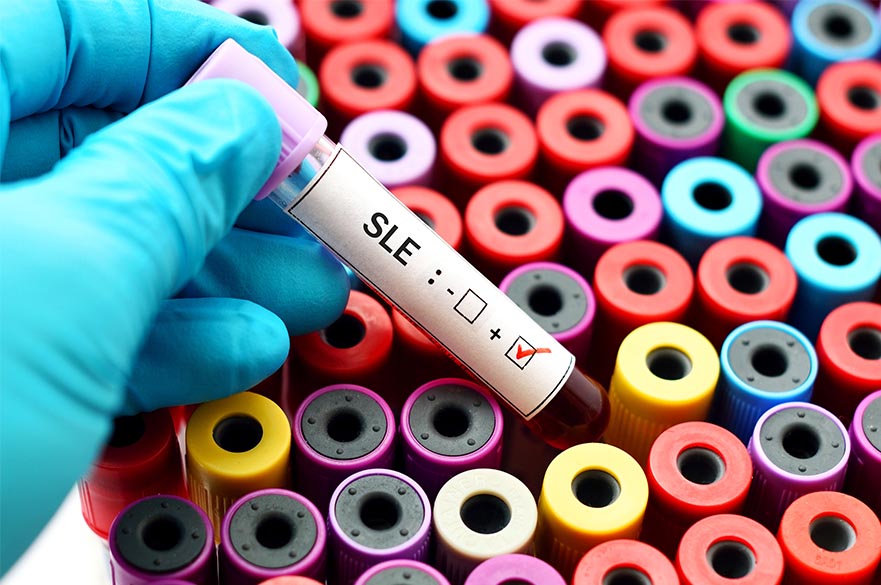Molecule sheds light on autoimmune disease status
Scientists have for the first time identified a protein in the blood that can be used to accurately monitor the disease status of lupus and a range of other autoimmune diseases.
By Helen Breese | Published on 7 January 2020
Categories: Press office; Research; Nottingham Law School;

Via a simple and cost-effective test, the biomarker makes it possible to confirm the presence, progression and even relapse of diseases including lupus, in which the body's immune system becomes hyperactive and attacks normal, healthy tissue.
The study involved Nottingham Trent University immunologist and senior Lecturer Dr Yasser El-Sherbiny while based at the University of Leeds.
It focused on the role of ‘interferon’, a large subgroup of proteins that help to regulate the immune system and are directly associated with autoimmune diseases, which also include juvenile arthritis, scleroderma and systemic sclerosis.
The team found that the expression of the protein, ‘tetherin’, was linked to a strong and consistent relationship with disease activity and status and could be measured to give an accurate representation of disease clinical activity and response to therapy.
It is the first time a molecule has been found that can reliably monitor the impact of interferon in this group of rheumatological diseases.
The significance of the biomarker was further validated following a longitudinal study of patients.
The work – reported in the journal Arthritis and Rheumatology – makes it possible to better assess, group and treat patients depending on their disease status.
“This study has built upon a rapidly expanding area of immunology and provides for the first time a cell-specific biomarker,” said Dr El-Sherbiny, who is based in Nottingham Trent University’s School of Science and Technology.
He said: “By measuring the interferon-inducible protein tetherin, we have a very sensitive and specific tool to monitor the status of these patients for the first time in a cheap, convenient and dynamic way.”
Notes for Editors
Press enquiries please contact Helen Breese, Public Relations Manager, on telephone +44 (0)115 848 8751, or via email.
About Nottingham Trent University
Nottingham Trent University (NTU) was named University of the Year 2019 in the Guardian University Awards. The award was based on performance and improvement in the Guardian University Guide, retention of students from low-participation areas and attainment of BME students. NTU was also the Times Higher Education University of the Year 2017, and The Times and Sunday Times Modern University of the Year 2018. These awards recognise NTU for its high levels of student satisfaction, its quality of teaching, its engagement with employers, and its overall student experience. The university has been rated Gold in the Government’s Teaching Excellence Framework – the highest ranking available.
It is one of the largest UK universities. With nearly 32,000 students and more than 4,000 staff located across four campuses, the University contributes £900m to the UK economy every year. With an international student population of more than 3,000 from around 100 countries, the University prides itself on its global outlook.
The university is passionate about creating opportunities and its extensive outreach programme is designed to enable NTU to be a vehicle for social mobility. NTU is among the UK’s top five recruiters of students from disadvantaged backgrounds. A total of 82% of its graduates go on to graduate entry employment or graduate entry education or training within six months of leaving. Student satisfaction is high: NTU achieved an 87% satisfaction score in the 2019 National Student Survey.
NTU is also one of the UK’s most environmentally friendly universities, containing some of the sector’s most inspiring and efficient award-winning buildings.
NTU is home to world-class research, and won The Queen’s Anniversary Prize in 2015 – the highest national honour for a UK university. It recognised the University’s pioneering projects to improve weapons and explosives detection in luggage; enable safer production of powdered infant formula; and combat food fraud.